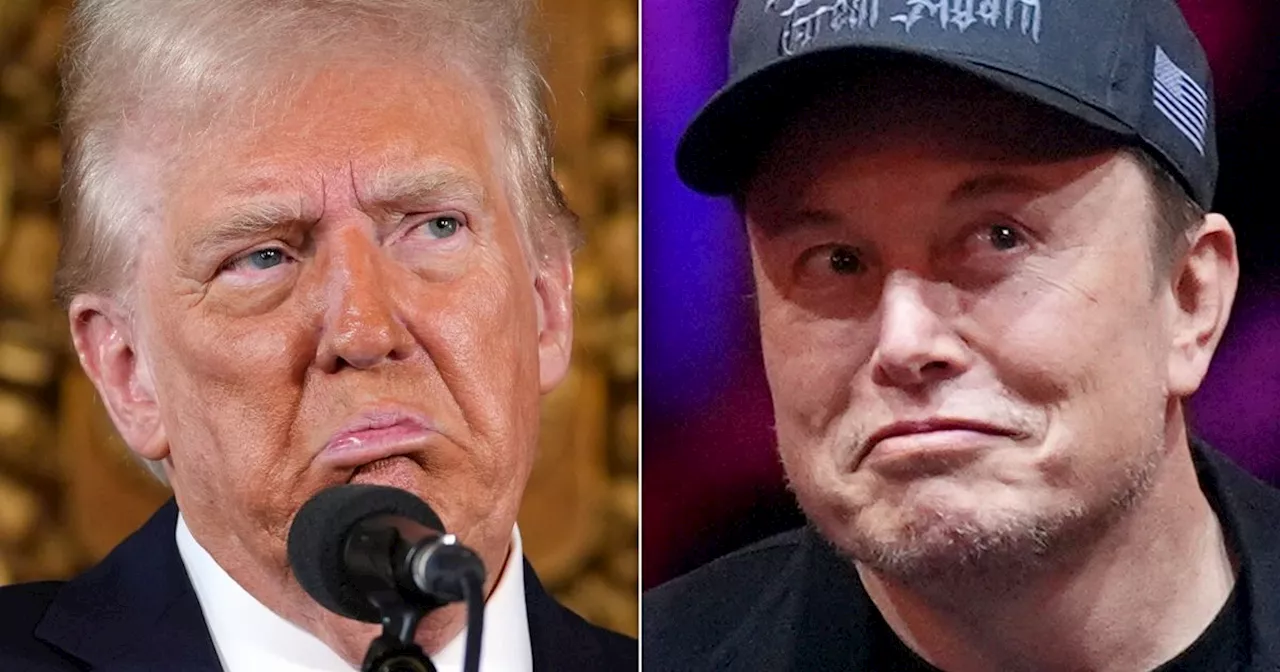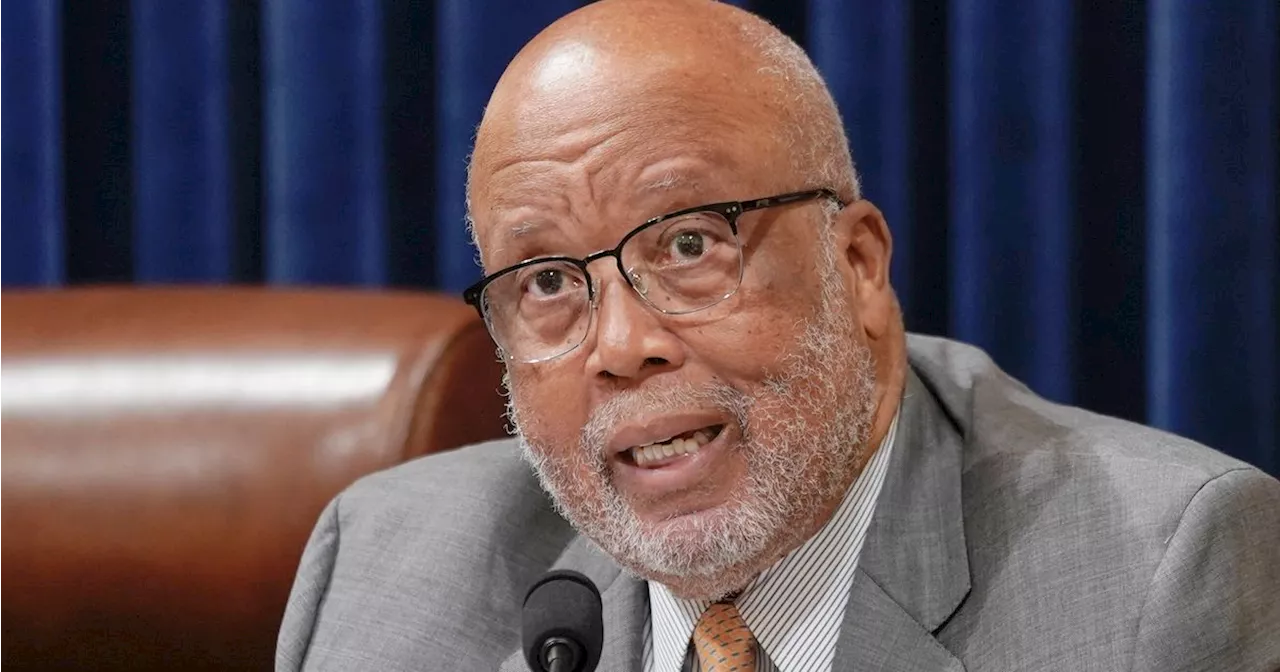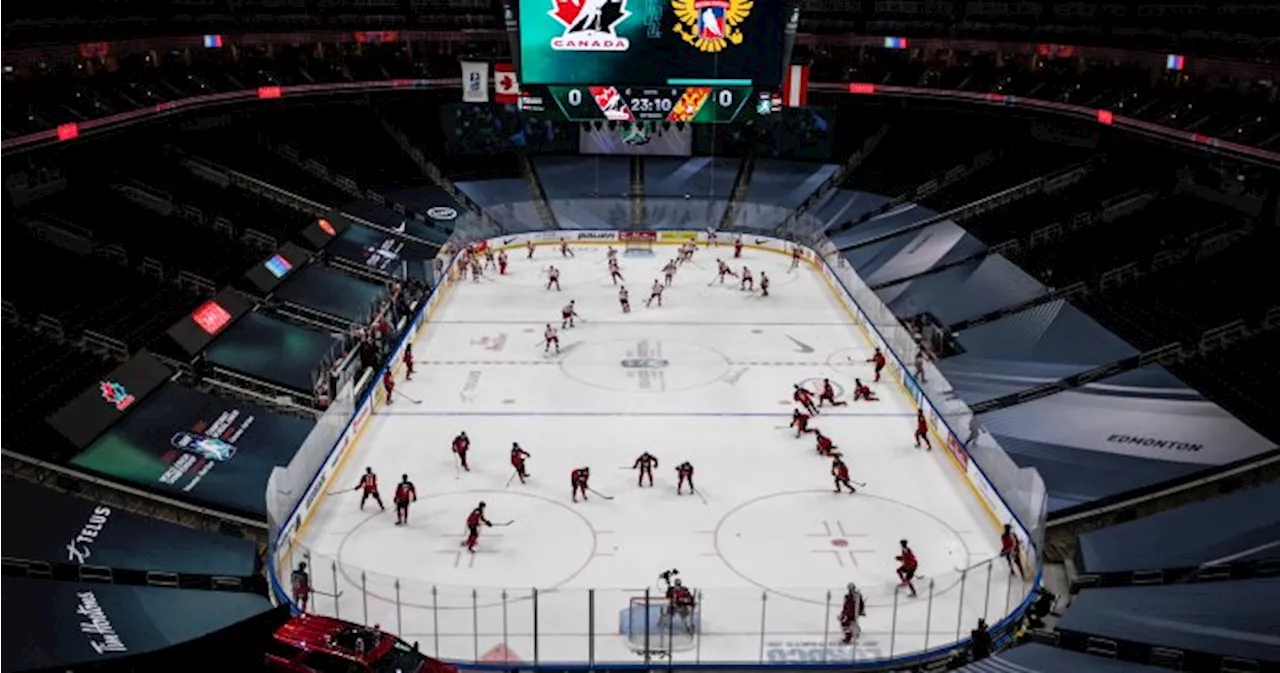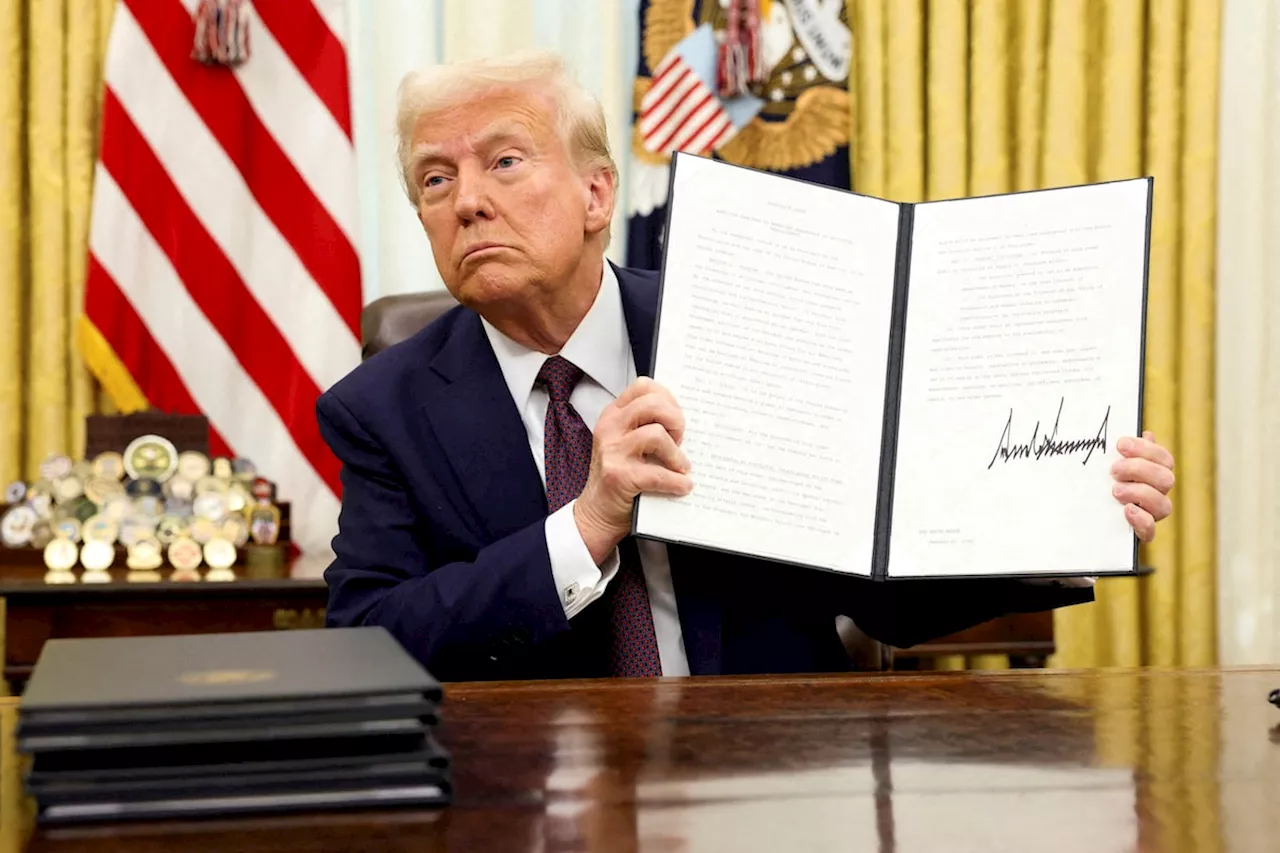Donald Trump's administration is taking steps to exert greater control over federal spending through a controversial freeze on grants and a controversial theory of presidential power known as 'impoundment.' This move reflects a long-held belief among Trump and his allies that the Office of Management and Budget (OMB) should play a more dominant role in shaping federal policy.
A White House order to freeze federal grants reflects a theory of presidential power that Donald Trump clearly endorsed during his 2024 campaign. The approach was further outlined in the Project 2025 governing treatise that candidate Trump furiously denied was a blueprint for his second administration.
At face value, the Monday evening memo from Matthew Vaeth, acting director of the White House Office of Management and Budget, is meant to bring federal spending in line with Trump’s executive actions, notably on LGBTQ+ issues, civil rights, energy and environmental policy. Vaeth’s memo invoked nakedly ideological terms: “The use of Federal resources to advance Marxist equity, transgenderism, and green new deal social engineering policies is a waste of taxpayer dollars that does not improve the day-to-day lives of those we serve.” The order, which was temporarily halted by a federal judge on Tuesday, could reach well beyond policy areas Vaeth singled out. And it is a potential preview of how Trump will attempt to wield executive power throughout his presidency. The president and his conservative allies made clear long before Vaeth’s memo that they see the Office of Management and Budget as a linchpin of power across the federal government. Part of the Executive Office of the President, the OMB staff prepares the president’s budget recommendations to Congress and oversees the implementation of the president’s priorities across all Executive Branch agencies. Lawmakers pass appropriations but executive agencies carry out federal programs and services. The overall process puts OMB on the front and back end of federal government strategy. Project 2025 authors, including Trump’s pick for OMB chief, Russell Vought, emphasized this function. Writing the Project 2025 chapter on presidential authority, Vought, who awaits Senate confirmation, made clear that he wants the post to wield more direct power. “The Director must view his job as the best, most comprehensive approximation of the President’s mind,” Vought wrote. The OMB, he declared, “is a President’s air-traffic control system” and should be “involved in all aspects of the White House policy process,” becoming “powerful enough to override implementing agencies’ bureaucracies.” Elsewhere, Project 2025 authors call for all presidential appointees to control “unaccountable federal spending” and set a course from the West Wing to subdue what Trump often calls “the Deep State” of government civil servants. “The Administrative State is not going anywhere until Congress acts to retrieve its own power from bureaucrats and the White House,” they wrote. “In the meantime, there are many executive tools a courageous conservative president can use to handcuff the bureaucracy (and) bring the Administrative State to heel.” In some ways, the president and his campaign went farther than Project 2025 in asserting presidential power over federal purse strings. In his Agenda 47, Trump endorsed “impoundment.” That legal theory holds that when lawmakers pass appropriations to fulfill their duties laid out in Article I of the Constitution, they simply set a spending ceiling, but not a floor. The president, the logic goes, can simply decide not to spend money on anything he deems unnecessary, because Article II of the Constitution gives the president the role of executing the laws that Congress passes. Congress acted during Richard Nixon’s presidency to reject the “impoundment” theory. But Trump’s circle wants to challenge that – potentially setting up a constitutional fight that would require the Supreme Court to weigh in. Vought did not venture into impoundment in his Project 2025 chapter. But, he wrote that the president “should use every possible tool to propose and impose fiscal discipline on the federal government. Anything short of that would constitute abject failure.” The president’s preferred path to impose spending cuts quickly now has become clearer. Elon Musk, leading Trump’s new Department of Government Efficiency, has suggested he could find federal spending cuts measuring in the trillions, even as Trump has promised to protect Social Security and Medicare. (That pledge was reflected in the memo pausing federal grants.) The OMB memo, Trump’s theory of impoundment, and his efforts to strip thousands of federal employees of their civil service protections all add up to a concentration of power in the West Wing that could define his second administration and Musk’s part in it. For example, Trump cannot on his own repeal legislation like the Clean Air Act or the Clean Water Act. But OMB could effectively cut off money for the programs, jobs and contractors necessary to enforce those laws. (Trump already has issued a wide-ranging federal hiring freez
DONALD TRUMP WHITE HOUSE FEDERAL SPENDING OMB PROJECT 2025 IMPOUNDMENT EXECUTIVE POWER RUSSELL VOUGHT ELON MUSK
Canada Latest News, Canada Headlines
Similar News:You can also read news stories similar to this one that we have collected from other news sources.
 Elon Musk Seeks White House Proximity, Trump May Be ReceptiveMaggie Haberman reports on Elon Musk's attempt to cozy up to Donald Trump, suggesting Musk wants an office on the White House campus. Trump, eager to please Musk, may be receptive to his request.
Elon Musk Seeks White House Proximity, Trump May Be ReceptiveMaggie Haberman reports on Elon Musk's attempt to cozy up to Donald Trump, suggesting Musk wants an office on the White House campus. Trump, eager to please Musk, may be receptive to his request.
Read more »
 Canada Prepares for Trump Tariffs as Trump Returns to White HousePrime Minister Justin Trudeau and Canadian cabinet ministers are bracing for the potential imposition of 25% tariffs on Canadian goods by newly inaugurated President Donald Trump. Canada has prepared retaliatory tariffs in response, and officials are urging the US to reconsider.
Canada Prepares for Trump Tariffs as Trump Returns to White HousePrime Minister Justin Trudeau and Canadian cabinet ministers are bracing for the potential imposition of 25% tariffs on Canadian goods by newly inaugurated President Donald Trump. Canada has prepared retaliatory tariffs in response, and officials are urging the US to reconsider.
Read more »
 Ex-Chair Of House Jan. 6 Panel Says He Spoke To White House About Possible PardonMarita Vlachou is a breaking news reporter for HuffPost based in London, United Kingdom.
Ex-Chair Of House Jan. 6 Panel Says He Spoke To White House About Possible PardonMarita Vlachou is a breaking news reporter for HuffPost based in London, United Kingdom.
Read more »
 Trump's Tariffs Loom Over Canada as President Returns to White HouseDonald Trump's return to the White House brings concerns about his disruptive agenda and potential tariffs on Canadian goods. Trump has threatened a 25% tariff on all products entering the US from Canada and Mexico, aiming to curb illegal border crossings. While Canadian Prime Minister Justin Trudeau met with Trump, no assurances were made regarding exemptions. Canada has responded with border security measures and awaits the impact of Trump's policies on trade and the economy.
Trump's Tariffs Loom Over Canada as President Returns to White HouseDonald Trump's return to the White House brings concerns about his disruptive agenda and potential tariffs on Canadian goods. Trump has threatened a 25% tariff on all products entering the US from Canada and Mexico, aiming to curb illegal border crossings. While Canadian Prime Minister Justin Trudeau met with Trump, no assurances were made regarding exemptions. Canada has responded with border security measures and awaits the impact of Trump's policies on trade and the economy.
Read more »
 Trump's Tariff Threat Looms Over Canada as He Returns to White HouseDonald Trump's return to the White House brings anxieties for Canada as he threatens massive tariffs on imports. The 25% tariff on all goods from Canada and Mexico could devastate industries and trigger a trade war.
Trump's Tariff Threat Looms Over Canada as He Returns to White HouseDonald Trump's return to the White House brings anxieties for Canada as he threatens massive tariffs on imports. The 25% tariff on all goods from Canada and Mexico could devastate industries and trigger a trade war.
Read more »
 Trump's Return to White House Could Lead to Russia's Reintegration into International HockeyDonald Trump's potential presidency could pave the way for Russia's re-entry into international hockey competitions. The International Ice Hockey Federation (IIHF) president, Luc Tardif, expressed hope for Russia's return, stating it would signal the end of the war in Ukraine. The IIHF awaits a decision regarding Russia's participation in the 2024 World Juniors and the 2026 Winter Olympics. Tardif emphasizes the urgency for clarity to allow organizing committees and teams to plan effectively.
Trump's Return to White House Could Lead to Russia's Reintegration into International HockeyDonald Trump's potential presidency could pave the way for Russia's re-entry into international hockey competitions. The International Ice Hockey Federation (IIHF) president, Luc Tardif, expressed hope for Russia's return, stating it would signal the end of the war in Ukraine. The IIHF awaits a decision regarding Russia's participation in the 2024 World Juniors and the 2026 Winter Olympics. Tardif emphasizes the urgency for clarity to allow organizing committees and teams to plan effectively.
Read more »
